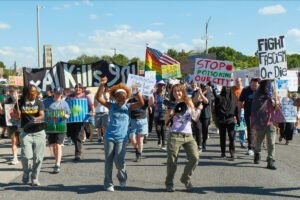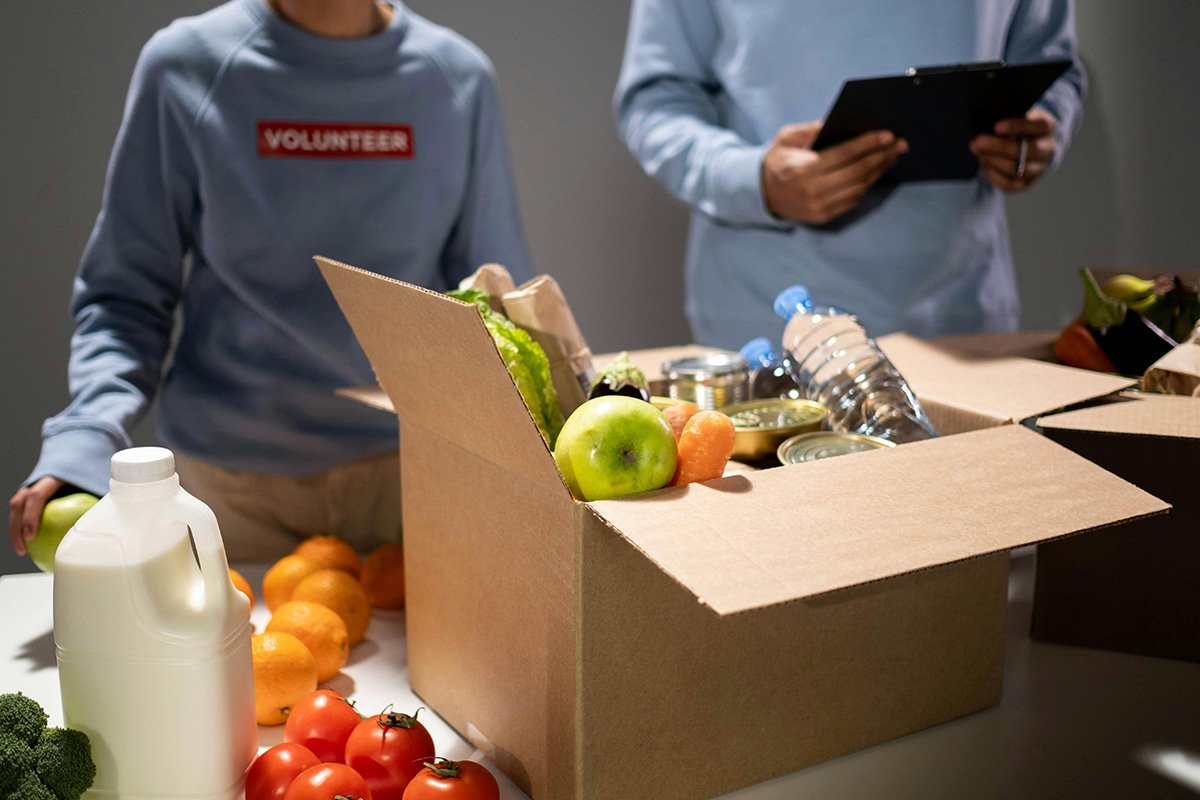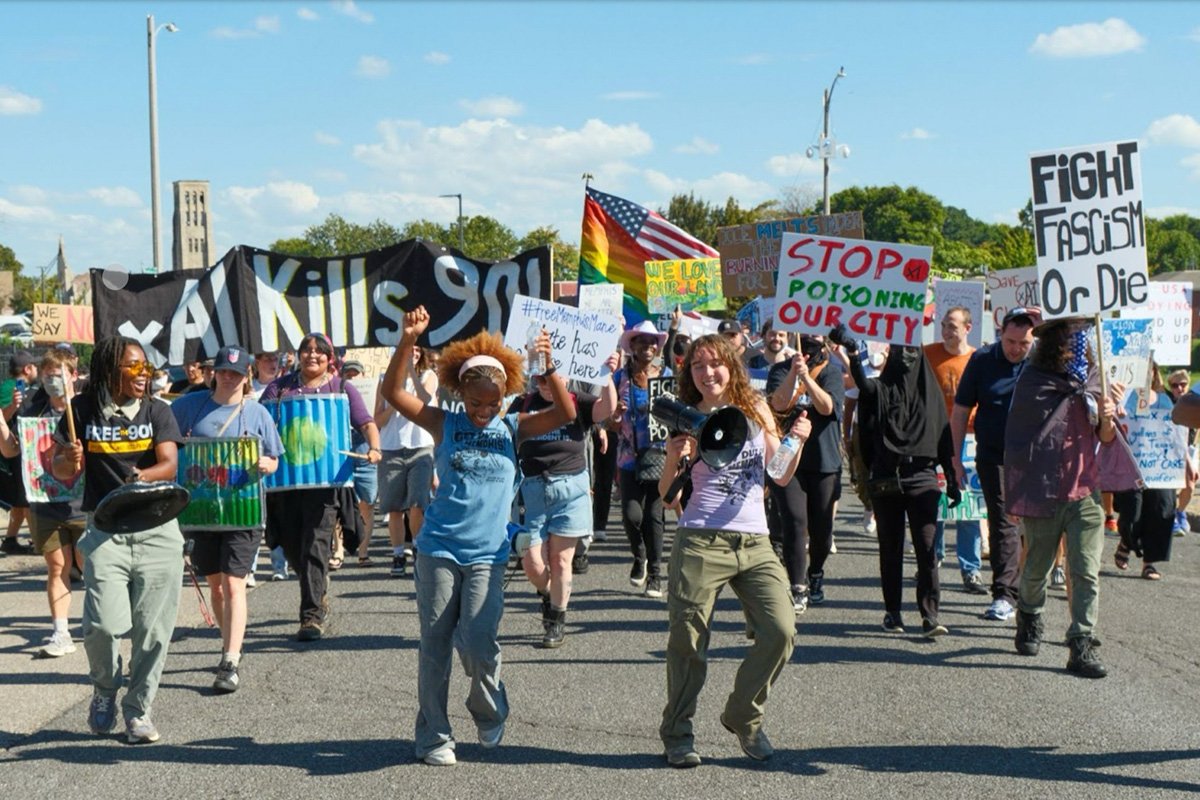
On his first day in office, President Donald Trump signed executive orders announcing the United States’ intention to withdraw from the World Health Organization (WHO) and suspend foreign aid.
On February 2, Trump directly denounced South Africa in a television interview, making (false) allegations of land confiscation. A few days later, on February 7, Trump issued a specific executive order declaring that the “United States shall not provide aid or assistance to South Africa.”
How will South Africa respond? Though it is far less dependent on aid than most African nations, the country’s terrible apartheid legacy creates pressure for national leaders to speak up on behalf of racial justice and against the rising global tide of authoritarianism.
When White conservative South Africans…claimed that “White genocide” was underway in the country, Trump embraced the false narrative.
At times, South Africa has taken risks on the global stage. Not long ago, it took the lead in submitting a claim at the International Court of Justice, accusing Israel of committing genocide in Gaza.
That said, it remains unclear how aggressive the South African government will be in response to the recent attacks from Trump. At present, many of its systems are under strain, and the United States’ actions put both the country’s health and economy at risk.
Foreign Aid and Trump’s Racist Politics
Trump’s actions targeting South Africa are set against a backdrop of racist rhetoric and disinformation promoted by his administration. When White conservative South Africans affiliated with AfriForum, an NGO focusing on the interests of the country’s white Afrikaner population, claimed that “White genocide” was underway in the country, Trump embraced the false narrative, describing the “large-scale killing of farmers” as a settled fact.
Not to be outdone was “first buddy” South African-born US billionaire Elon Musk, who claimed on social media that the South African government is “openly pushing for genocide of White people in South Africa.”
Now Musk is accusing South African President Cyril Ramaphosa of having “openly racist ownership laws,” referring to a new land expropriation law that took effect in January 2025. This law was passed in 2024 after nearly five years of parliamentary debate as an effort to address racial land inequality in South Africa, a legacy of apartheid. A 2017 land study found that White people in South Africa, who make up 8 percent of the population, owned 75 percent of the land.
The new law is hardly confiscatory. With rare exceptions, land can only be acquired in exchange for “fair compensation.” The law’s primary purpose is to facilitate government acquisition of land at a negotiated price for public benefit—akin to US laws regarding eminent domain.
Ramaphosa has moved to dispel the disinformation, saying the country has always had land expropriation laws that “balance the need for public usage of land and the protection of rights of property owners.” He has also spoken to Musk to clarify the law’s terms.
The United States has historically been the WHO’s biggest contributor….Its withdrawal will likely reduce the organization’s total budget by 10 percent.
Vaccine Apartheid and Global Health
Trump’s executive order on WHO, then, is shocking but not surprising, especially given that his administration sought to withdraw in July 2020, during his previous presidential term. The United States’ withdrawal from WHO will, however, certainly have negative repercussions for global health. It also comes at a time when painful memories of COVID-19 still haunt the global community.
COVID-19 notably exposed a shocking and inhuman injustice in global health of “vaccine apartheid.” At that time, Ramaphosa took the lead in opposing the unequal global distribution of COVID vaccines, arguing that “no one is safe until everyone is safe.”
As Health Justice Initiative reported, South Africa and India had to engage in gloves-off diplomacy to get the World Trade Organization (WTO) to waive the Trade-Related Aspects of Intellectual Property Rights (TRIPS) agreement to support broader COVID-19 prevention, containment, and treatment in poorer countries.
South Africa prevailed, but victory came too late for many. The country submitted its proposal in October 2020. The waiver wasn’t granted until June 2022—after 6.3 million deaths worldwide had been reported.
Of course, the WHO’s global health mission extends far beyond COVID, spearheading efforts for universal access to quality healthcare and to combat HIV/AIDS globally. It has opposed “vaccine apartheid” in all vaccines. The COVAX program that expanded access to COVID-19 vaccines and the related establishment of a Technology Transfer Hub for COVID-19 vaccine production in South Africa is just one example of this.
The United States has historically been the WHO’s biggest contributor in funding and expertise. Its withdrawal will likely reduce the organization’s total budget by 10 percent. Kaiser Family Foundation notes that the WHO already has financial challenges. Reuters reported that WHO Director-General Tedros Adhanom Ghebreyesus announced cost-cutting measures in response to the threatened US withdrawal.
Sign up for our free newsletters
Subscribe to NPQ's newsletters to have our top stories delivered directly to your inbox.
By signing up, you agree to our privacy policy and terms of use, and to receive messages from NPQ and our partners.
For South Africa, the move would eliminate US expertise and other health resources required to support South Africa’s vaccine production, which has traditionally come through WHO to member countries. As E. Tendayi Achiume, United Nations special rapporteur on contemporary forms of racism, racial discrimination, xenophobia, and related intolerance, recently noted, injustices in global health are historical and deeply entrenched and “half-measures and weak compromises are not enough.”
“We have seen clinics…engaging in health shutdowns due to these directives. It’s a devastating situation for South Africa.”
Meanwhile, the WHO has responded to Trump’s announcements in a conciliatory manner but emphasized the organization “plays a crucial role in protecting health and security of the world’s people, including Americans, by addressing the root causes of disease, building stronger health systems and detecting, preventing and responding to health emergencies.” It has expressed hope that the Trump administration will reconsider its decision and engage in a “constructive dialogue” to benefit global health.
Impact on HIV/AIDS
The South African dispute with the United States comes at a time when uncertainty and fears regarding future funding under the US President’s Emergency Plan for AIDS Relief (PEPFAR)—a program originally established by President George W. Bush—has trickled down in communities across the country.
HIV is pervasive in sub-Saharan Africa and even worse in South Africa, but many countries across the globe have benefited immensely from PEPFAR funding. In a public statement, the International AIDS Society (IAS) warned that the immediate halting of PEPFAR funding, “including a stop-work order for existing grants and contracts, places millions of lives in jeopardy.”
“PEPFAR provides lifesaving antiretrovirals for more than 20 million people—and stopping its funding essentially stops their HIV treatment. If that happens, people are going to die and HIV will resurge,” the IAS statement read.
In South Africa, uncertainty, frustrations, and fears have dominated radio phone-in programs and social media platforms. Speaking on one of the local radio stations days after the “stop-work” announcement, Bhekisisa Centre for Health Journalism’s editor in chief Mia Malan said: “We have seen clinics in Greenpoint, Cape Town, and the Ivan Centre for Health, along with clinics in the Eastern Cape and Johannesburg, engaging in health shutdowns due to these directives. It’s a devastating situation for South Africa.”
In an interview with the Daily Maverick, Lynne Wilkinson, a South Africa-based public health specialist in the HIV/AIDS sector, said: “My opinion is that HIV programs should fall under life-saving humanitarian assistance. People living with HIV will get sick and die, with an increase in transmission and incidence.”
South Africa has the world’s biggest HIV program, with 5.5 million people on antiretroviral medication. According to Health Minister Aaron Motsoaledi, who has attempted to assuage fears about the US withdrawal, PEPFAR accounts for only 17.5 percent of its R44.4 billion (US$2.4 billion) annual budget. The biggest problem, he argued, would be “the salaries and the operational costs (of clinics and NGOs funded by USAID).”
Broader Challenges
Complicating the picture, potential PEPFAR cuts come as the country grapples internally with healthcare policy. At issue is the implementation of national health insurance (NHI) legislation that was passed in May 2024. The Democratic Alliance, the nation’s second-largest political party, generally associated with White and business interests, says NHI will cost too much and must be scrapped. Motsoaledi says NHI will proceed regardless to “enable South Africans to access all health care they need without suffering financial hardships.”
NHI seeks to correct the current unequal and inefficient two-tiered healthcare system. Public healthcare with poor facilities caters to approximately 71 percent of the population, overwhelmingly Black. The private healthcare system, which has top-class facilities, caters to around 27 percent of the population, disproportionately White.
What’s Next?
It remains to be seen what steps Ramaphosa will take, both to respond to the Trump administration and to protect public health.
In his State of the Nation speech on February 6, Ramaphosa indicated the path the South African government might take: “We are witnessing the rise of nationalism and protectionism, the pursuit of narrow interests and the decline of common cause.”
“This is the world that we, as a developing economy, must now navigate,” Ramaphosa said at Parliament in Cape Town. “But we are not daunted. We will not be deterred. We are a resilient people. We will not be bullied. We will stand together.”
The speech gives one facet of the government’s response. But Ramaphosa has painstakingly tried to tie foreign policy to “national progress,” which in every turn comes to economic growth, job creation, and poverty reduction. Rhetoric aside, the government is not eager to mud-wrestle Trump on foreign aid and jeopardize trade and investment relations.
South Africa exports more to the United States than to any other country except China. South Africa supplies the United States with critical minerals such as manganese, titanium, platinum, and chromium. Ramaphosa wants continued inclusion in the African Growth and Opportunity Act, which gives duty-free access to US markets for certain products from sub-Saharan African countries.
In the end, by using the word “navigate,” Ramaphosa is giving his government some wiggle room and could be preparing citizens to accept potential tradeoffs vis-à-vis external public health funding to maintain favorable trade and investment relations with the United States. What terms Ramaphosa can strike and whether he succeeds in promoting economic growth, job creation, and poverty eradication remains to be seen.











